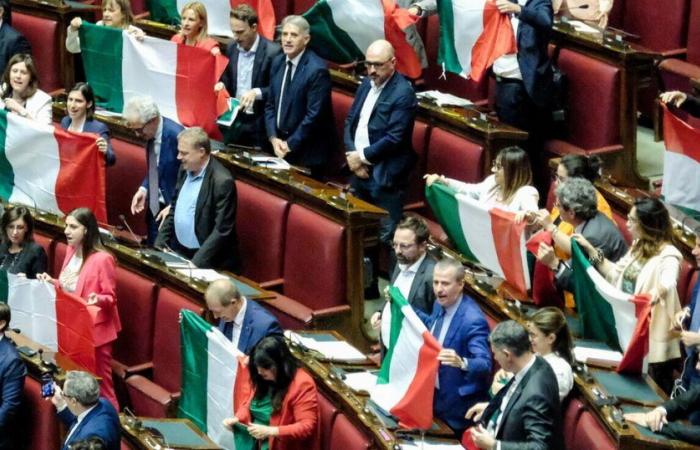The law on differentiated autonomy has, unfortunately, been at the center of distorted propaganda readings. But there are many critical points, such as a probable increase in bureaucracy, and the availability of resources for each region, in practice, does not change
On 19 June the law on differentiated autonomy was approved in the Chamber. This project, together with that of the premiership, seems to be the object of the distinction between right and left. The right rejoices, the Prime Minister even declared that this law puts an end to the era of welfare and, in any case, in general it is seen as a victory for the Northern regions. A Venetian or Lombard voter probably perceives it as an opportunity for greater decision-making autonomy, but also for greater availability of the resources produced in the area. The left and the South in general see this law as profoundly unjust because it divides the country. This view is probably due to the perception that decentralization would lead to an increase in resources for rich regions to the detriment of poor regions. The whole debate focuses on this perception. The country is in the grip of a collective hysteria of jubilation which manifests itself in Parliament with the waving of Venetian or Lombard flags, and of protest on the other side with attempts to wrap Minister Calderoli in a tricolour.
On 19 June the law on differentiated autonomy was approved in the Chamber. This project, together with that of the premiership, seems to be the object of the distinction between right and left. The right rejoices, the Prime Minister even declared that this law puts an end to the era of welfare and, in any case, in general it is seen as a victory for the Northern regions. A Venetian or Lombard voter probably perceives it as an opportunity for greater decision-making autonomy, but also for greater availability of the resources produced in the area. The left and the South in general see this law as profoundly unjust because it divides the country. This view is probably due to the perception that decentralization would lead to an increase in resources for rich regions to the detriment of poor regions. The whole debate focuses on this perception. The country is in the grip of a collective hysteria of jubilation which manifests itself in Parliament with the waving of Venetian or Lombard flags, and of protest on the other side with attempts to wrap Minister Calderoli in a tricolour.
The situation we are experiencing is an example of how it is possible to distort information to make political propaganda. They communicate to their voters what they would like to be done, but not what has actually been done. The law, in reality, guarantees financial invariance for the regions that do not participate in any agreement, protecting their historical spending. Furthermore, a possible increase in the resources dedicated to financing the LEPs of the devolved functions cannot “jeopardize the extent and proportionality of the resources to be allocated to each of the other regions”. Therefore, if the resources necessary to satisfy the LEPs of the regions that have requested the devolution of functions are increased, the increase cannot violate the proportion in which the resources were distributed before the agreements. This means that we must also increase the availability of the regions that do not ask for autonomy.
The law effectively certifies that the distribution of resources after the agreements cannot deviate from the criterion of historical expenditure. In practice, as far as the availability of resources is concerned, nothing changes. Given that all this is provided for in Article 9 of the law, it is not clear why it is not clearly communicated by both the right-wing and left-wing parties to their voters, before making them rejoice or take to the streets. Communicating this information would help to calm people’s minds and think with more balance on the topic. Instead, we prefer to take the comparison to extremes.
The law perhaps poses some problems, but in areas other than those for which one is celebrating or protesting. In fact, we must not forget that the regions will be able to immediately begin to ask for greater autonomy on matters for which it is not necessary to estimate the Lep. These are of a regulatory nature: this is the case, for example, of foreign trade, complementary and integrative social security, civil protection, banks of regional interest, professions and so on. There is an obvious risk that the attribution of these functions to the regions could in some cases create a serious problem with the multiplication of bureaucracies, to the detriment of the efficiency of the overall system. Furthermore, even for the subjects that require the estimation of LEPs, there are some that clearly identify national or even global public goods. Think, for example, of the protection of the environment and the ecosystem or the management of ports and airports. It is clear that we cannot think of effective environmental legislation valid only within regional borders.
There is no basic criterion in the law that should be followed to decide which and how many matters can be devolved. Yet, there is a vast economic and legal literature on the topic that would prescribe essential guidelines. Everything is left to political negotiation between the government and the regions, with Parliament limiting itself to approving an agreement already found. Furthermore, given the financial constraints discussed above, it would be a good bet for the regions that ask for autonomy, once the Leps have been approved: they would have to manage the devolved functions (think in particular of education) with the same resources that are currently used on the territory by the central state, guaranteeing the essential levels required by state law.
After the celebrations and protests we are witnessing in recent days, it would be really interesting to see which and how many regions will request the devolution of functions under these conditions. It is on this final outcome that voters, both on the right and on the left, should evaluate the validity of the reform, not on proclamations that only mystify the reality of things.





